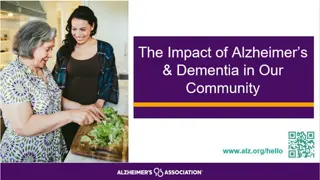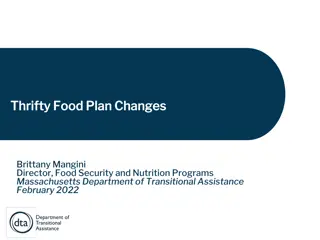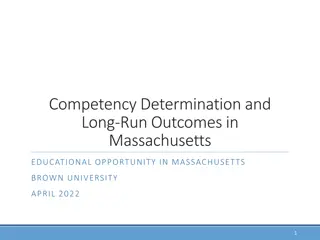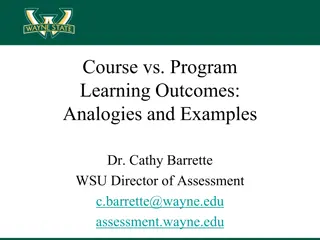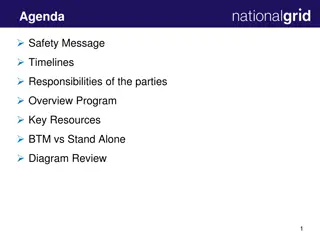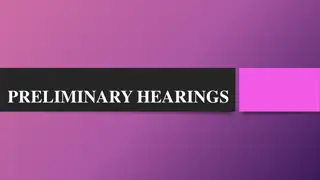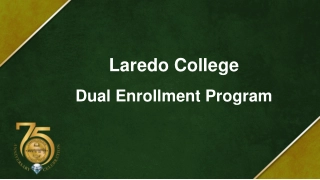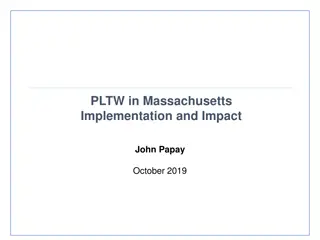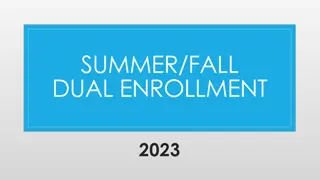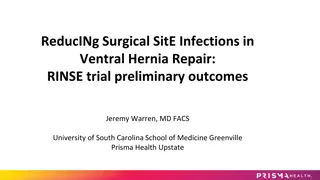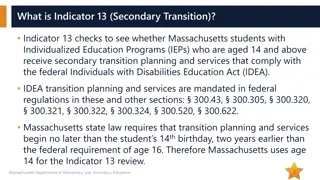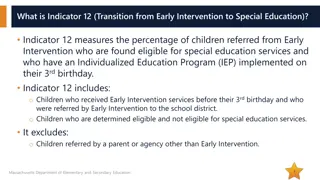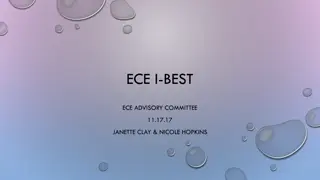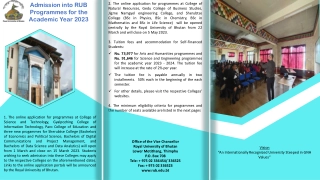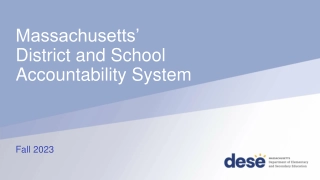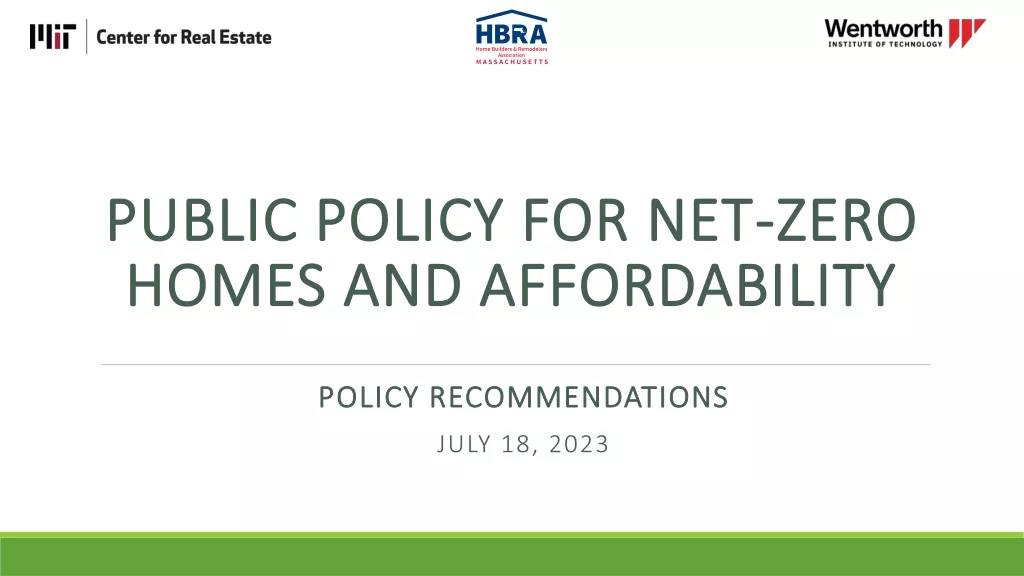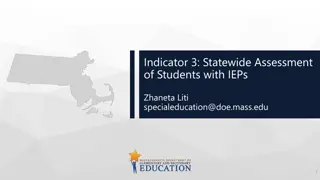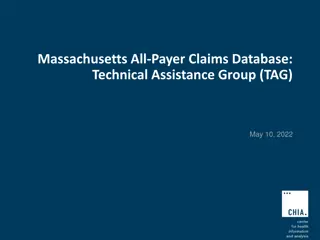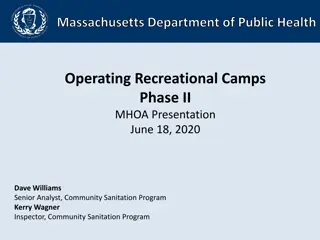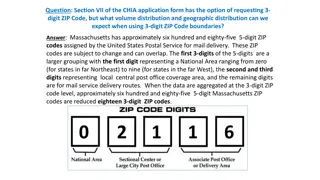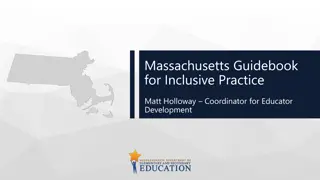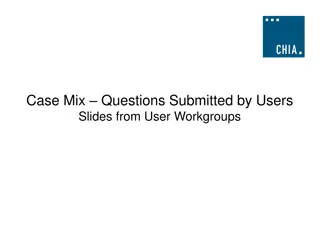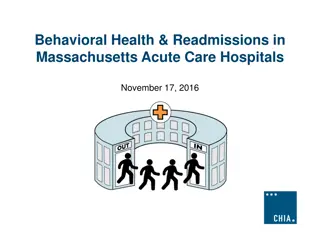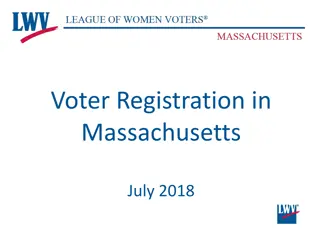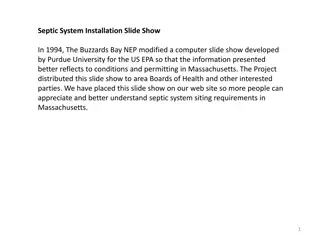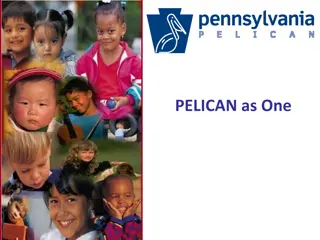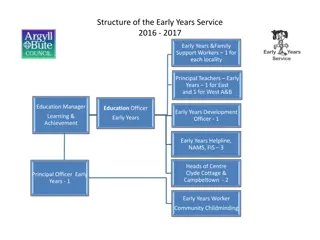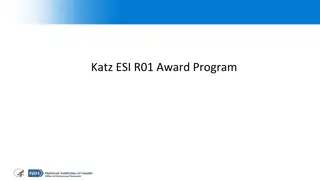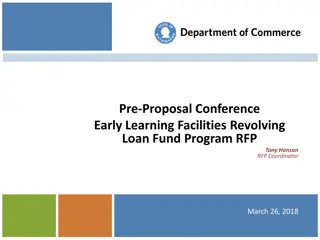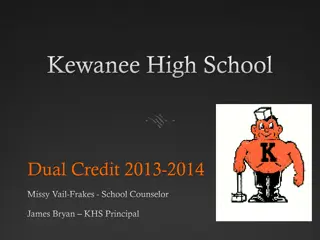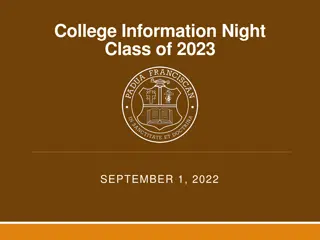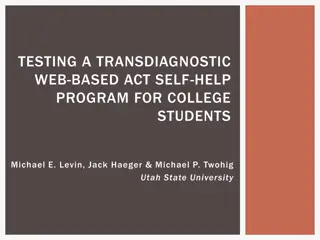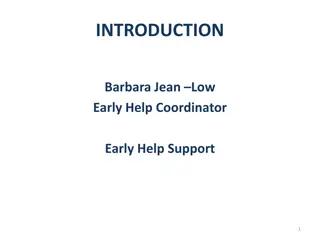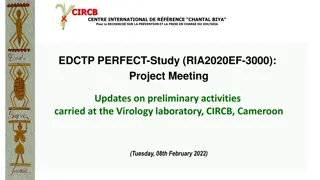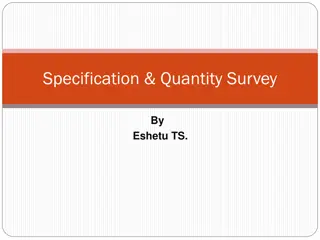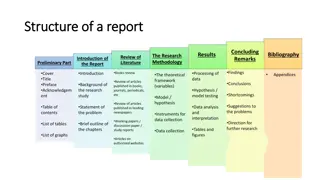Preliminary Outcomes of Massachusetts Early College Program
Massachusetts Early College Program, launched in 2018, shows promising outcomes based on data analysis for the 2019 cohort. The program focuses on students of color and aims to bridge high school and college experiences. Data sources include SIMS, SCS, MCAS, NSC, and FAFSA. Methodology involves propensity score matching to compare participants with non-participants. Limitations include small sample size and limited data availability. The inaugural year results highlight the need for further study on college persistence and completion rates.
Download Presentation

Please find below an Image/Link to download the presentation.
The content on the website is provided AS IS for your information and personal use only. It may not be sold, licensed, or shared on other websites without obtaining consent from the author. Download presentation by click this link. If you encounter any issues during the download, it is possible that the publisher has removed the file from their server.
E N D
Presentation Transcript
Massachusetts Early College Preliminary Outcomes Pierre Lucien Pierre Lucien Policy Analyst, Department of Elementary and Secondary Education Strategic Data Project (SDP) Fellow, Harvard University Massachusetts Business Alliance for Education August 2020
Massachusetts Early College Massachusetts Early College Data, Methods, and Limitations: Data: Data: Student Information Management System (SIMS) Student Course Schedule (SCS) Massachusetts Comprehensive Assessment System (MCAS) National Student Clearinghouse (NSC) Free Application for Federal Student Aid (FAFSA) Balance Table (2019 12th Graders Only) Early College State Peer 361 7% 10% 67% 14% 2% 8% 47% 4% 93% 78% # of Students Asian Black Latinx White Multiracial English Learner Economically Disadvantaged Students with Disability Proficient in ELA MCAS Proficient in Math MCAS 361 7% 10% 67% 14% 2% 8% 47% 4% 92% 76% Methodology: Methodology: One-to-one propensity score matching based on demographics Students with similar likelihood of participating, based on observable characteristics but did not The balance table of 12th grade participants from 2019 demonstrates strength of the match Definitions: Definitions: School Peer- non-participating students who attend the same school State Peer- matched comparison group from propensity scores Limitations: Limitations: 1 complete year of data available at the time of analysis Small Sample Size- The 2019 cohort consisted of 1,140 students, including 361 12th grade participants in the program in 2019. Many variables not yet available- college persistence, retention, completion NOTE: 8 initial Early College partnerships were Designated in 2018, comprised of 18 high schools and 9 colleges and universit NOTE: 8 initial Early College partnerships were Designated in 2018, comprised of 18 high schools and 9 colleges and universities ies 08/26/20 2
* *In addition, the majority of Designated EC high schools in 2019 were comprised predominantly of students of color *In addition, the majority of Designated EC high schools in 2019 were comprised predominantly of students of color. . 08/26/20 3
* NOTE: 2019 was inaugural year of Designation so these 12 NOTE: 2019 was inaugural year of Designation so these 12th th graders did not have benefit of multiple years in Early College program. graders did not have benefit of multiple years in Early College program. 08/26/20 4
Note: These credits represent an estimated savings of at least $1,000,000 in tuition and fees for EC students in Massachusett Note: These credits represent an estimated savings of at least $1,000,000 in tuition and fees for EC students in Massachusetts s 08/26/20 5
NOTE: NOTE: MassCore MassCore and FAFSA completion rates are used as indicators of college readiness in Massachusetts and FAFSA completion rates are used as indicators of college readiness in Massachusetts 08/26/20 6
08/26/20 7
08/26/20 8
Note: 93% of these 12 Note: 93% of these 12th th graders enrolled in MA institutions (77% enrolled in public higher education institutions) graders enrolled in MA institutions (77% enrolled in public higher education institutions) 08/26/20 9
08/26/20 10
* * Designated EC Programs increased in both size and number in 2020 * Designated EC Programs increased in both size and number in 2020 08/26/20 11
08/26/20 12
Massachusetts Early College Massachusetts Early College Looking Forward: Upcoming Data Highlights College readiness and initial postsecondary outcomes College readiness and initial postsecondary outcomes for the EC class of 2020 Spring 2020 course completion rates Spring 2020 course completion rates initial survey suggests strong results around 80% course completion which would be on par with the 85% completion rate in 2019 Confirmation of projected Fall 2020 increases in enrollment (despite Covid-19) increases in enrollment numbers Additional data from the 6 newly Designated programs, 6 newly Designated programs, approved by ECJC in June 2020 Number of Associate s degrees Associate s degrees earned by the first graduating cohort of Wall- to Wall Early College High School* * This partnership reporting large percentage of students on track to receive Associate s degree at time of graduation Spring * This partnership reporting large percentage of students on track to receive Associate s degree at time of graduation Spring 20 2021 21 08/26/20 13





